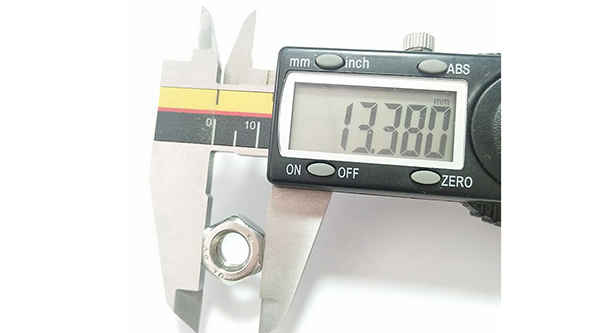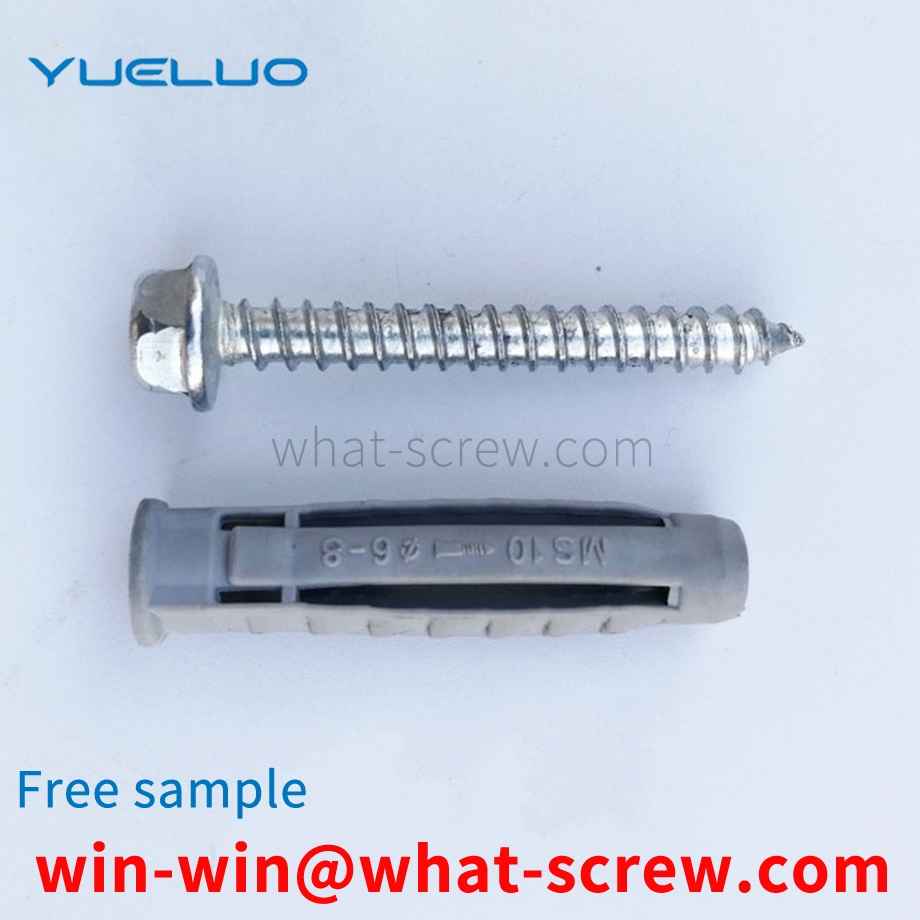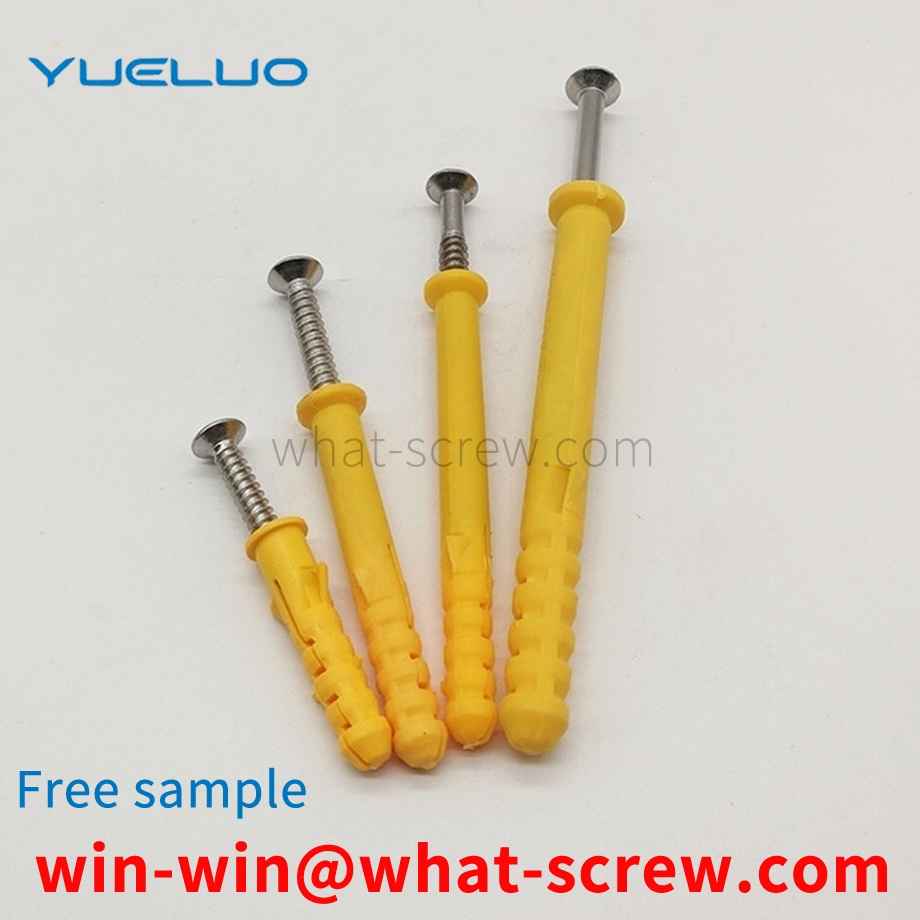What is the tolerance range of precision screws?
What is the tolerance range of precision screws?
Service Hotline
+86760-8787 8587We have more than ten years of experience in screw industry production, the main products are: hollow copper studs, aluminum solid rivets, hexagonal thickened nuts, non-standard hexagonal nuts, white round head Phillips pan head screws, DIN186 bolts, Torx screws, 304 hexagon socket head cap screws, external and internal serrated stop washers, internal thread taper pins, laptop screws and nuts, lifting ring double-ended screws, internal and external teeth nickel-plated color zinc, yuan nuts, black T-slot bolts and other fasteners, Due to the different materials and specifications of the products, the prices are also different, please contact us if necessary.


Countersunk head, half countersunk head, 1200 countersunk head, half countersunk head rivets are mainly used for riveting occasions where the surface needs to be smooth and the load is not large. Flat head rivets are used for riveting occasions subject to general loads. Flat head and flat head rivets are mainly used for riveting of metal sheets or non-metallic materials such as leather, canvas and wood. Large flat head rivets are mainly used for riveting of non-metallic materials. Semi-hollow rivets are mainly used for riveting occasions with little load. Headless rivets are mainly used for riveting of non-metallic materials. Hollow rivets are light in weight and weak in head, and are used for riveting of non-metallic materials with little load. Tubular rivets are used for unloaded riveting of non-metallic materials. Nameplate rivets are mainly used for riveting nameplates on machines and equipment.

Stud bolts generally need to be surface treated. There are many types of bolt surface treatments. Generally, electroplating, blackening, oxidation, phosphating, and electroless zinc flake coating are commonly used. However, electroplated fasteners account for a large proportion of the actual use of fasteners. Especially in automobiles, tractors, home appliances, instrumentation, aerospace, communications and other industries and fields are more widely used. However, for threaded fasteners, not only a certain anti-corrosion capability is required in use, but also the interchangeability of threads must be ensured, which can also be called screwability here. In order to meet the dual-use performance of anti-corrosion and interchangeability required by threaded fasteners in use, it is very necessary to formulate special plating standards. [1] The GB/T5267.1-2002 [Threaded Fastener Electroplating Coating] standard is one of the national standards Fastener Surface Treatment series of standards, which include: GB/T5267.1-2002 [Fastener Electroplating Layer]; GB/T5267.2-2002 [Fastener electroless zinc flake coating] two standards. This standard is equivalent to the international standard ISO4042; 1999 [Threaded fastener electroplating layer]. This standard replaces the GB/T5267-1985 [Threaded Fastener Electroplating Coating] standard.


Spring washers are widely used in the load-bearing and non-load-bearing structures of general mechanical products. They are characterized by low cost and easy installation. They are suitable for parts with frequent assembly and disassembly. Quick and easy automatic selection of washers is included, but the anti-loosening ability of spring washers is very low! Especially in European and American countries that require high reliability, the adoption rate is extremely low, especially the important load-bearing structural connection parts have long been abandoned. Our country still has some applications in the military industry, but it has been improved to stainless steel. Steel spring washers have long been banned in CASC! It is also said to be very unsafe, because there are two reasons: 1 is circle rise and 2 is hydrogen embrittlement.

Moisture-proof measures Iron screws are easy to rust in a humid environment. In order to prevent the screws from rusting, the screws need to be moisture-proof and moisture-proof. The moisture-proof and moisture-proof methods of screws are as follows: (1) Vibration machinery, try to use solvent-free paint. (2) It is best to use impregnating paints that do not contain oxidative components, such as epoxy-urethane (Epoxy-urethane)-based or unmodified epoxy-based (Epoxy-)-based impregnating paints. (3) When using melamine alkyd impregnating paint, the curing temperature and curing time should be adjusted. The curing temperature should be slightly higher than 130 °C (such as 135 °C) and the curing time should be longer than 180min, and the process must be strictly implemented, especially In the hot and humid season, the drying (curing) time of the paint specified in the paint factory's samples is not necessarily sufficient from the perspective of rust prevention, and the motor has a specific inner shape. (4), use paint without volatile acid. (5) Choose paint with good hydrolysis resistance.

The above content is uploaded by Yueluo or the Internet. If there is any copyright issue, please contact [email protected].

What is the tolerance range of precision screws?

How to choose the right stainless steel screw manufacturer?

Why is there an R angle under the head of the hexagon head s...

We have more than ten years of screw industry production exp...

We have more than ten years of experience in the production ...

We have more than ten years of production experience in the ...

We have more than ten years of production experience in the ...